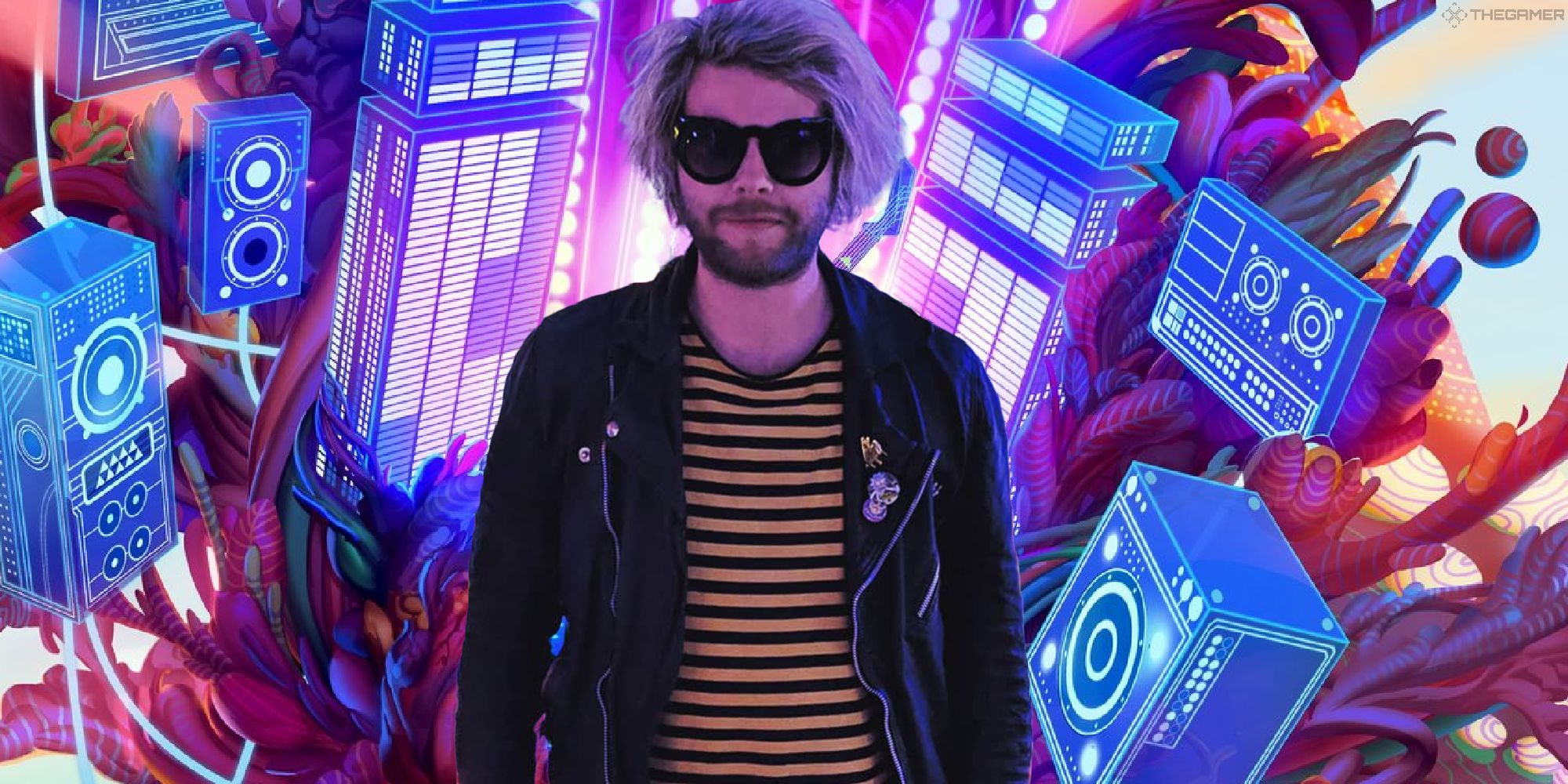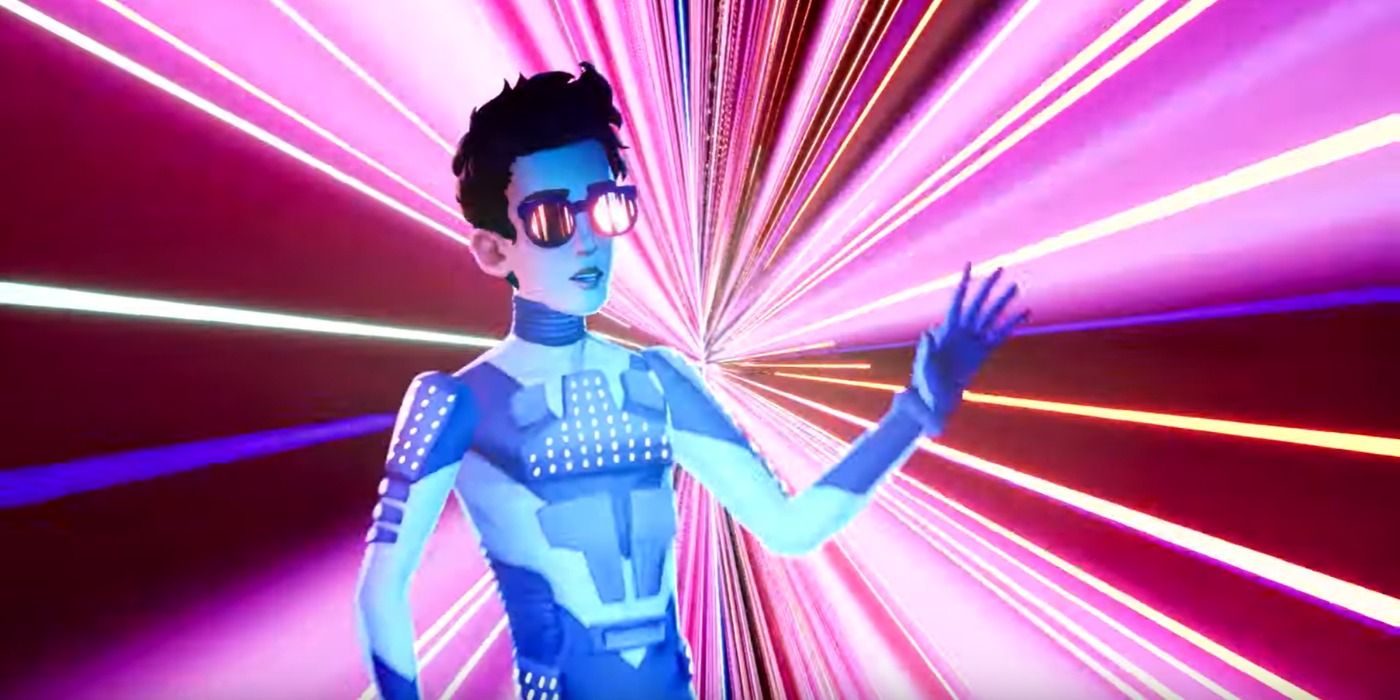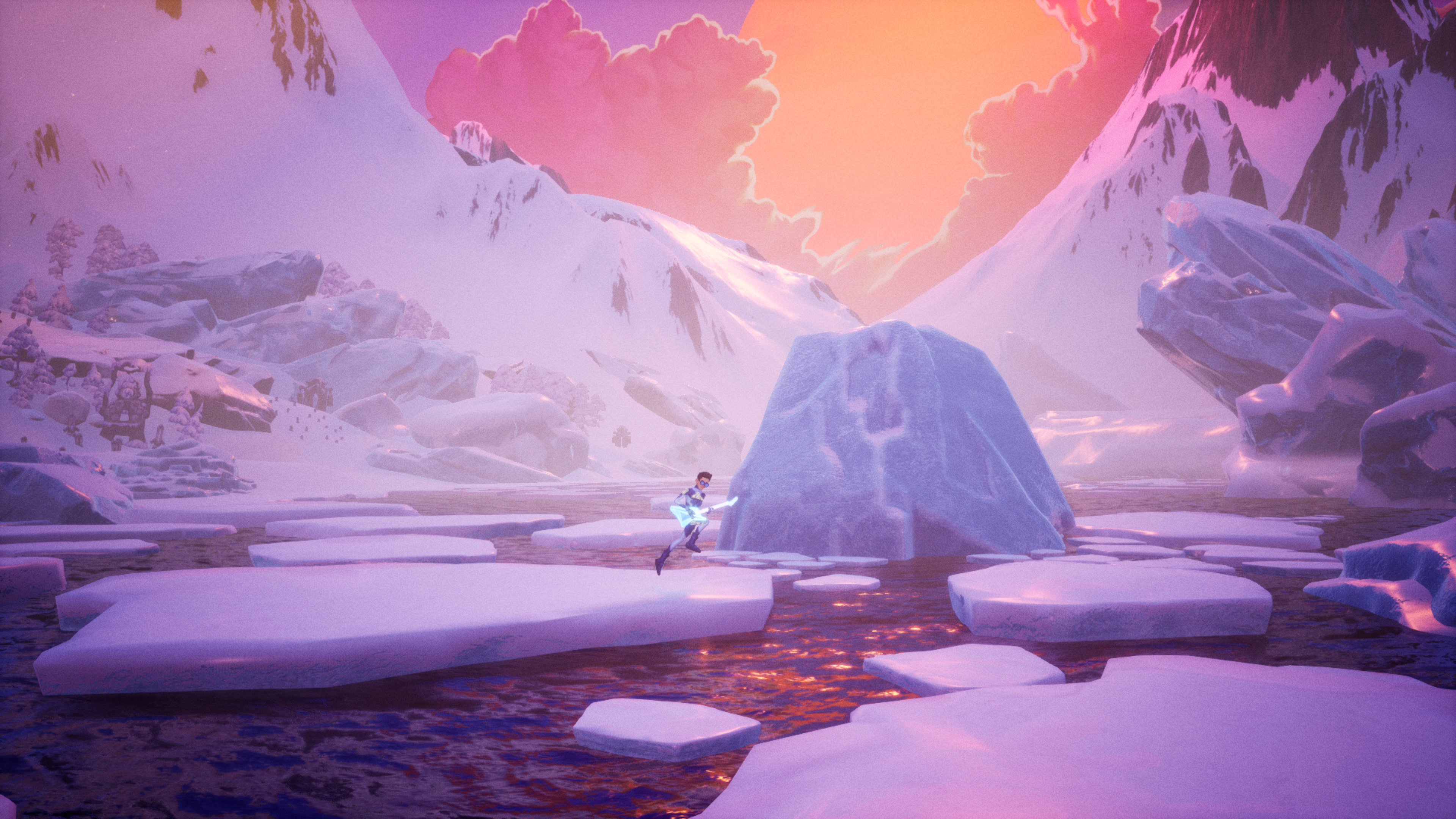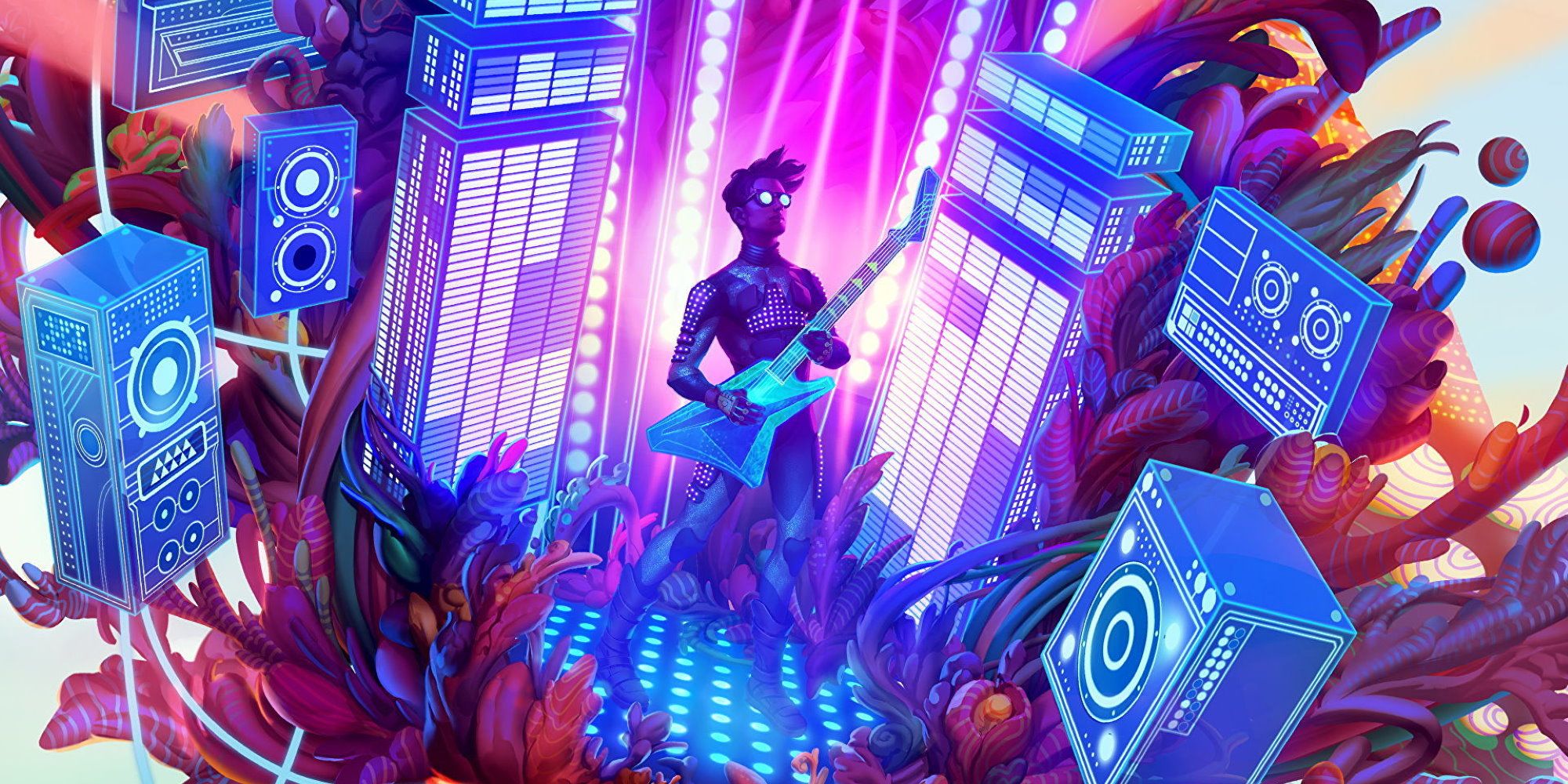“It’s the November Rain of video games,” The Artful Escape developer Johnny Galvatron laughs. Music, like games, is a serious business. Both industries are incredibly difficult to break into, and both require dedication, tenacity, precision, and largely doing the same thing over and over and over again until you’re just about good enough to not completely suck at it. Ultimately though, both are expressions of joy, and that’s what The Artful Escape leans into.
The Artful Escape is fairly light on gameplay until you get around a third of the way in, and even then it’s not trying to be ‘the Dark Souls’ of whatever genre you might reasonably describe it as. I’ve played it through to completion and I’m still not sure. Even when it is a game though, the price for failure is low. Miss a jump? Start back where you just fell. Miss a note? Start back at that chord progression. It never turns into Guitar Hero where the squelching mass of aliens in the crowd boo you off stage. Galvatron explains that this decision was very deliberate, and a key foundation in what The Artful Escape is.
“The kind of music I play doesn't feel difficult,” Galvatron says. “It doesn't feel like the notes are screaming at you, and you're concentrating hard. I always use Smells Like Teen Spirit as an example. Beating someone up when you’re Batman should be effortless. I wanted a music equivalent of that. The other angle is coming in from a gameplay point of view. You want to try and say something with your gameplay, and I wanted to say that Francis's journey is not in him becoming a better musician. You start with every trick in the book, you can do everything that Francis can do from the start because I wanted that narrative experience within gameplay. It's not Francis' mastery of the guitar that needs to be conquered. He is a prodigal guitar player. It's these other things. It's these satellite aspects, he needs to come to terms with and learn about and get over this societal expectation of his hometown. I wanted the player to be like, ‘Well, he's obviously brilliant’. There's nothing wrong with his heart and his music and everything. It's these other things that Francis needs to overcome.”
This journey takes Francis beyond the stars as musical spacemen abduct him to join their travelling band, far enough out in the galaxy to avoid the shadow of his legendary uncle. Galvatron describes it as “the opposite of my adventure,” with his own time as a touring musician largely spent travelling around RSL clubs in Australia - essentially bars and casinos for veterans, filled with “rowdy clientele.” Francis’ journey is the journey Galvatron always wanted to take.
“It took me years to figure out what I was doing with that period of my life but I think I was just trying to live a weird fantasy concept,” he says. “I wasn't trying to add anything to the musical firmament, I wasn't trying to do anything exciting musically. I was just trying to live this weird ‘80s Devo, Van Halen fantasy and for some reason, it worked out for a while and I got to do all these fun rock 'n' roll things. And then when I came home, I just didn't want to leave the house ever again. I wrote a novel, showed it to no one, and then got back into gaming.”
While I was aware of Galvatron’s time as a professional musician, the fact that he had also written a secret novel did not surprise me either - the game feels just as influenced by music as it is by old, dog-eared sci fi paperbacks with coffee-stained pages and nonsensical kaleidoscopic front covers. “There is that paperback thing to it,” he says. “I'm glad you got that. That's cool. I wanted it to be like Star Trek if the budget had been small for the aliens. Those ‘we can do that with makeup’ kind of aliens, and a lot of them.”
Of course, music is still the driving force of the game, both narratively and thematically. There’s a uniqueness to The Artful Escape’s respect for and understanding of music, not as an extra flourish to aid the game’s storytelling, but as the vehicle for storytelling itself. “Usually you'll have people come in [to games development] from that narrative angle or the gameplay angle, but not always music,” Galvatron says. “You get something different. My favourite Spielberg movie is Close Encounters of the Third Kind, and you can see that in the game, totally. I read that [Close Encounters] was the only film that he cut to the music. It just has a different feel to it. So I guess maybe coming in and approaching things, from gameplay to the pacing of the game, I'm happy with how it feels. I approached it musically in a verse, chorus, coda kind of way. What a joy to just be able to go into the studio and jam for weeks.”
Because of the game’s inherent musicality, music is often literally in the spotlight. Some of the moments I enjoyed most in the game came from simply standing still, holding down X, and jamming. Every single note felt perfectly in sync, like it was tailor-made for me to push that exact button at that exact moment on that exact planet. As Galvatron explains, that was deliberate, but it also wasn’t.
“Dark Side of the Rainbow is when you start playing Dark Side of the Moon on the third roar of the MGM lion at the start of The Wizard of Oz,” he says. “It feels like they go together. But really, it's just your brain looking for pattern recognition and associating some kind of meaning between the two things. We've done that in a layered audio way. It worked off the bat, and I can’t believe it because it's silly on paper to be like, ‘We'll just do everything in the same key and you can start the guitar anytime and we'll try and finesse it until it works’. It works really well because I think people are putting the music together in their brain. You hear the guitar line suddenly become a counter melody to something in the background, you think, ‘Well, that was meant to do that’. But nope. Happy accident. [We made the] music slightly amorphous and brought in that guitar that's quite sing-songy, and quite melodic. It's nothing that's too DragonForce, and it seems to flow together really beautifully.”




